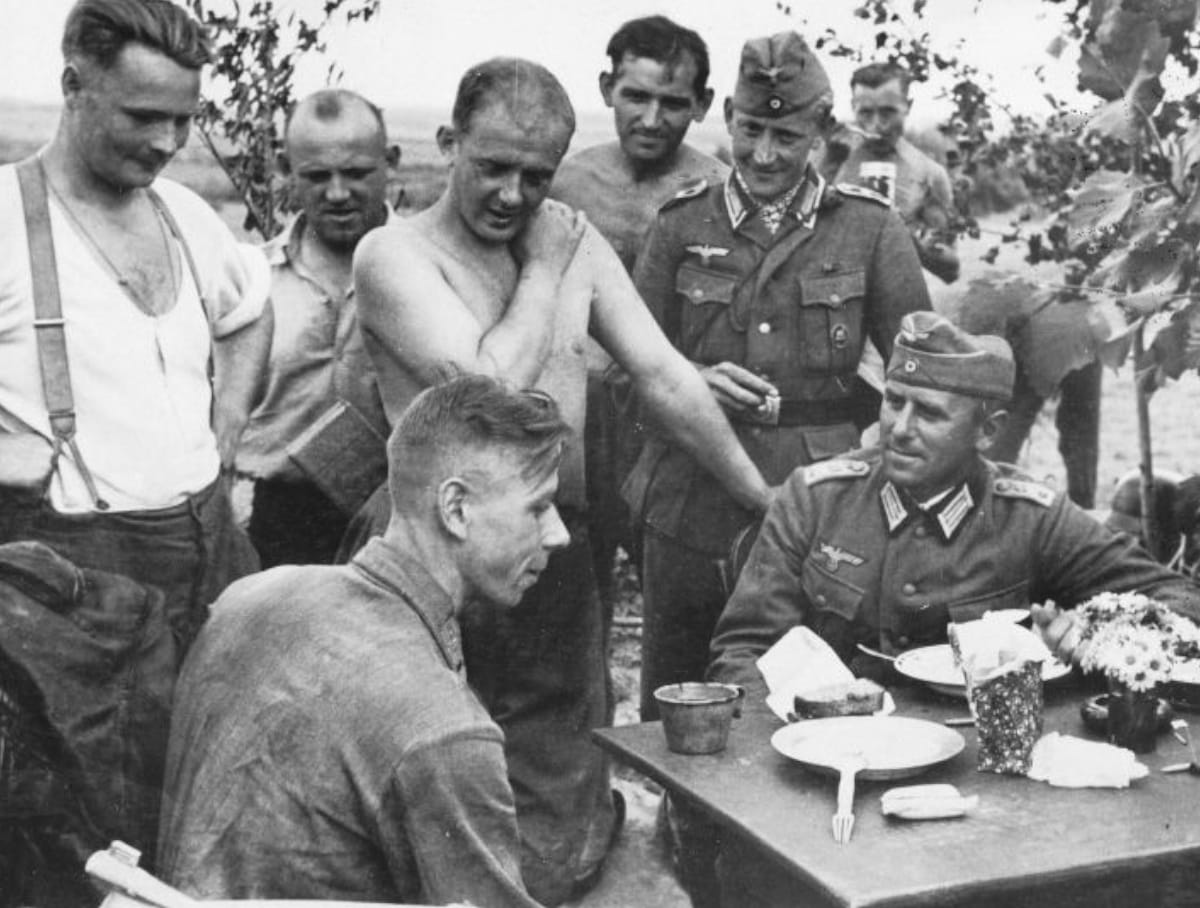A story allegedly told by a participant in World War II is spreading across the Internet. We checked whether this is a real case.
The story, which has become popular on the Internet, is written from the perspective of a Soviet soldier. Her hero talks about how he was captured in the summer of 1942, when the advantage in the war was on the side of Germany. During the interrogation, he amused his interlocutor with his confidence in the upcoming victory:
“Suddenly his eyes brightened:
- Russian, I’ll let you go now. But if you believe so much in victory, then give me your word. If you win the war, you will find me!
-Who should I look for? — I was taken aback, not believing that the German would just let me go.
- Erich Hauer.
- I promise!"
Some publications report that after the surrender of Germany the main character was never able to find out anything about Hauer, others say that he died during the war.
This short text has been actively distributed on social networks in recent years - popular publications are posted on Facebook, Telegram, "VKontakte" And Instagram.
There are not many details in the story: neither the place where the events take place, nor the rank of the German military man, nor the name of the narrator is indicated. The only clarification is the name of the German: Erich Hauer.
IN database There is only one gravesite of soldiers killed in the First and Second World Wars of the German army Erich Hauer, who, based on his age, could have interrogated a captured soldier in 1942 (two of his other full namesakes were still teenagers at that time).

However, this Erich Hauer ended his days in September 1945, after the end of hostilities, with the rank of chief corporal, which belongs to the rank and file. Judging by what has reached our days numerous evidence, prisoners of war were interrogated, as a rule, by officers.
There are other details in the story that raise doubts about its veracity. Thus, the German exclamation “Er ist tot!”, translated as “killed”, is actually literally means “He died!” and has no figurative meaning. Identical To Russian, the German-language expression sounds like “Ich lach mich tot” and is not at all similar to the one used in the text. At the same time, the rest of the German-language phrases in Erich Hauer’s remark are correct.
It seems unlikely that such an easy acquisition of freedom by a Soviet prisoner of war based on the unauthorized decision of an individual German military man. Regulations treatment of USSR soldiers was maximum tough (unlike representatives of European countries). By different data, up to 3.3 million of the 5.73 million Red Army soldiers captured by the Germans were eventually killed or died due to inhumane conditions in the camps.
Certain categories could gain freedom: “Germans (Volksdeutsche), Ukrainians, Belarusians, Latvians, Estonians, Lithuanians, Romanians, Finns.” Those released, as a rule, received a certificate and had to register at the commandant’s office in the occupied territory.
That is, theoretically, the prisoner of war could be released, but the reason for the generosity of the German officer sounds implausible. Soviet soldiers were released either under strict regulations or after providing certain information.
Finally, the origin of the text itself looks even less plausible. "Verified" did not find traces publications of similar history in books or periodicals of both the 20th century, when the memoirs of war veterans were recorded, and the 21st. The story about the incident in German captivity has been spreading since 2020, exclusively through social networks and entertainment sites.
The oldest “Verified” publication of a story about Erich Hauer and a Soviet soldier found is dated April 17, 2020, when this text appeared in the channel “They fought for their homeland” in “Zen” and collected 271,000 views. The publication in no way claimed that the described case was real. The description of the anonymous channel itself says: “The exploits of our ancestors during the Second World War. Many materials, due to the confusion of memories, have undergone artistic processing. The channel contains stories based on the author’s imagination.” The last sentence confirms the hypothesis that the whole story about German captivity is nothing more than fiction.
Cover photo: wwii.space
Read on topic:
- Is it true that during the Great Patriotic War, one German soldier wrote in his diary: “We will never defeat the Russians, because their children fight like heroes”?
- Is it true that Dmitry Nagiyev is the author of the anti-war text “Our Victory!”?
- Is it true that Germany exported Ukrainian black soil in an organized manner during the Great Patriotic War?
If you find a spelling or grammatical error, please let us know by highlighting the error text and clicking Ctrl+Enter.






